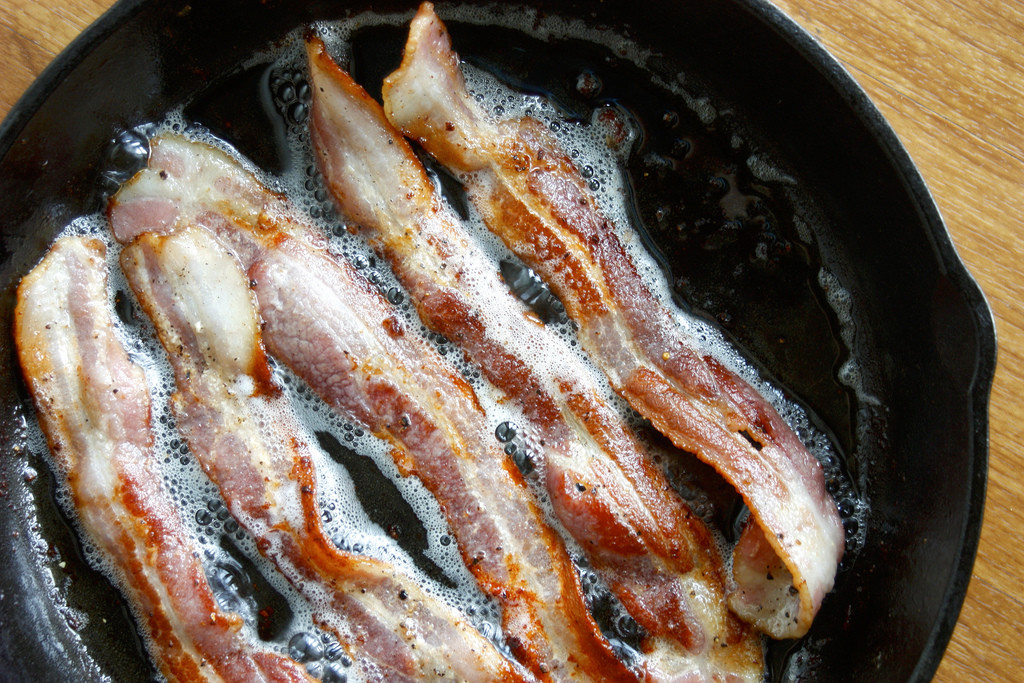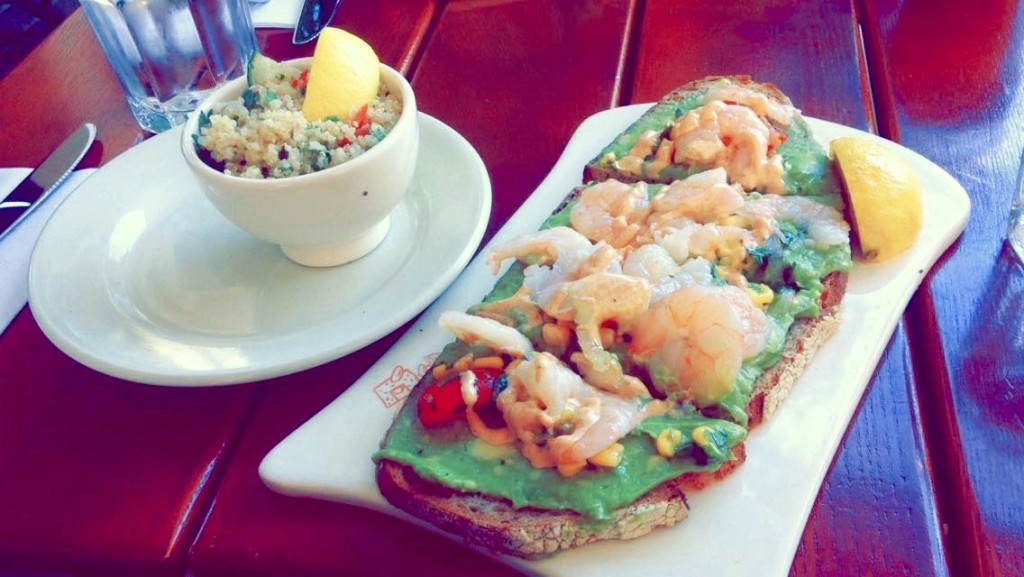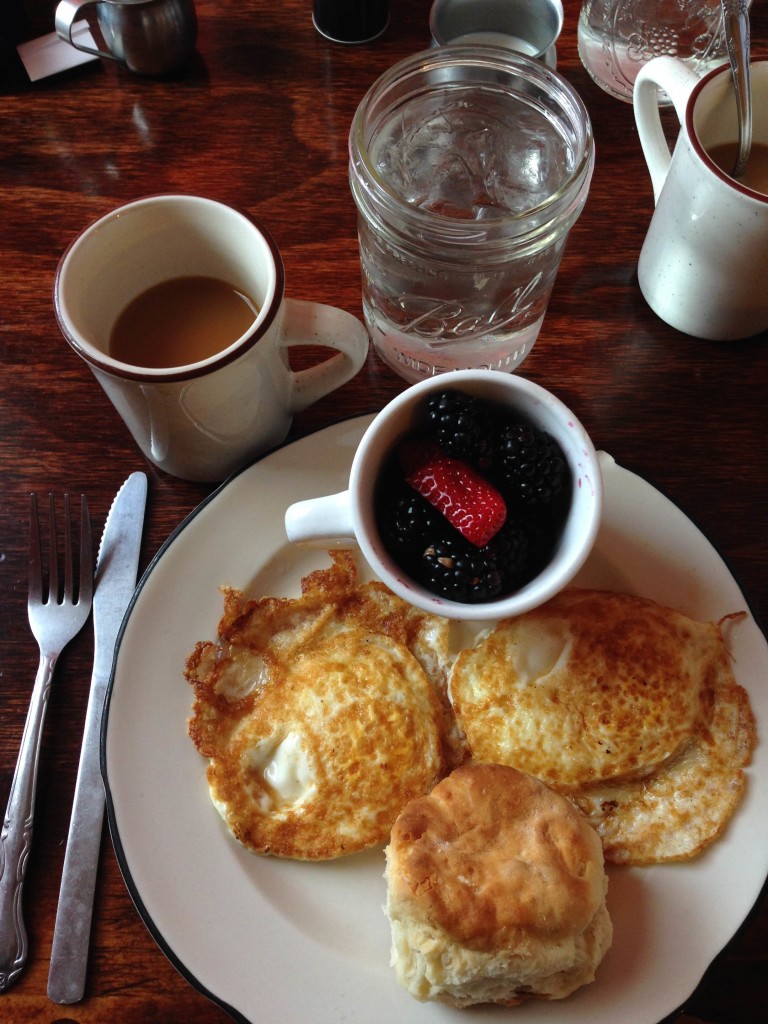We’ve all been told way too many times that breakfast is the most important meal of the day – that phrase alone is practically the motto of moms everywhere.
So, to appease the food gods, and our moms, we snag an Eggo waffle (or a piece of fruit, in the name of health) before speed-walking to that 8:30 am. However, for most people, the temptation to skip breakfast altogether is dangerously strong.
Whether you’re late for class and running out the door, or craving caffeine more than anything else, or just too tired to even think about eating – sometimes, it’s just easier to forget about breakfast. I’m personally guilty of the grab-a-granola-bar-and-go breakfast strategy.
But when you skip breakfast, you are killing your own metabolism, which, as KidsHealth.org explains, is “the process by which the body converts the fuel in food to energy.” In other words, not eating breakfast is practically voluntary weight gain.
Think about it – the time between breakfast and dinner is the longest time you ever go between meals, as Consumer Reports points out. That makes breakfast the most pivotal part of your day. Your body needs a balanced breakfast to jump-start your metabolism and glucose and insulin levels.
This affects the rest of your day, too. When you skimp on breakfast, you’re more likely to overeat later and consume more calories than you normally would (or should).

GIF courtesy of giphy.com
Skipping meals as a weight loss strategy is harmful enough in and of itself. But breakfast is the worst possible meal to miss. You set your body up for a day of slow metabolism and unreasonably high hunger levels – it’s just inevitable.
And eating an unhealthy, unbalanced breakfast? That’s basically the same as missing it altogether. That waffle, grabbed and scarfed down in an effort to make up for hitting the snooze button five times, may actually be one of the sources of your Freshman 15. Or Sophomore 20.
Fiber and protein are two things you should incorporate into every meal (and snack) you eat, all day long – but most importantly, you should incorporate them into your breakfast. Fiber and protein are what make you full and keep you full, and satisfied in between meals.
If your breakfast is lacking in fiber or protein, you’re gonna be feeling the same hunger pangs in an hour or two that you would if you had not eaten breakfast at all. And what good are empty calories?
Here’s what amping up your breakfast can do for you:
It can make you smarter

Photo by Christin Urso
More bacon = more brains. It’s science. In spite of a certain controversial World Health Organization report, you probably don’t need to worry too much about the freaky health risks.
According to the National Institutes of Health, eating breakfast has been shown to improve cognition and mental processing. Want to keep your grades up? Eat breakfast.
When you first wake up, your blood glucose levels are incredibly low, because you’ve basically just fasted for at least eight hours. (Break-fast, get it?) Low glucose levels in your blood translate to concentration and memory difficulties.
They say you shouldn’t drink on an empty stomach. Well, you also shouldn’t do college on an empty stomach. Taking a morning midterm to the soundtrack of your own belly growling isn’t really ideal, or beneficial to you in any way.
Waking up with low glucose levels, though, does not justify a sugar-packed breakfast. Chocolate chip pancakes might be the bomb, but eating them will only lead to you crashing later. If you’re craving something sweet, swap that sugar out for natural sugars, found in fruit, much of which also happens to be high in fiber. It’s a win-win.
It can make you happier and healthier

Photo by Jordan Abramowitz
Because how could eating toast like that NOT make you happy? Research has shown that breakfast eaters tend to have more balanced diets overall and higher intakes of nutrients throughout their day. They also are in a better mood for the rest of the day. Who knew?
It’s also interesting to note that breakfast eaters are usually more physically active than breakfast skippers. Gotta love that non-caffeine morning energy boost.
Protein is all the more essential for physical activity, because it acts as both a muscle-builder and fuel for the body. Don’t shy away from peanut butter, eggs, lox and milk, because they are all great sources of breakfast protein.
The implications for physical and mental health are pretty tough to ignore. If optimism, nutrition, and fitness are three things you’ve always wanted a little more of in your life, eating a balanced breakfast every morning may be the place to start.
So does Mom say you need an attitude adjustment? Or that you shouldn’t be such a couch potato? Eat some breakfast, and then tell her to reconsider.
It can make you skinnier

Photo by Talia Greenberg
Dietary fiber in food fills you up faster – it’s just science. Getting full faster means eating less food in general, which in turn means lower daily calorie consumption. Yeah, it IS possible to cut calories without starving yourself.
For all you breakfast-skippers, one study in the American Journal of Epidemiology found that people who skip breakfast are 4.5 times more likely to be obese than those who do eat breakfast.
And, as mentioned before, the calories you don’t consume in the morning will be overcompensated for – for the rest of the day. So if losing weight is the reason why you’re skipping your morning meal or eating a super-light one, you might want to rethink your logic.
Not only is breakfast the most important meal of the day, it should also be the biggest meal of the day. American culture typically promotes dinner as a large meal and breakfast as a tiny one, when really, it should be the other way around.
So take the extra five minutes and make that avo toast. Cook that omelette. Microwave that oatmeal. Grab that yogurt and granola. Because we could all use a little more breakfast in our lives.
By all means, get your daily post-wake-up caffeine fix. Lord knows we all need it. Just don’t let it replace what really, truly is the most important meal of the day. Happy breakfasting y’all.


